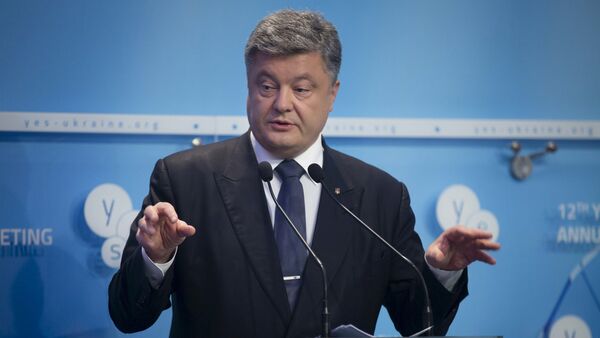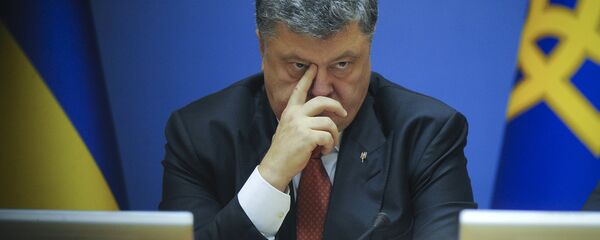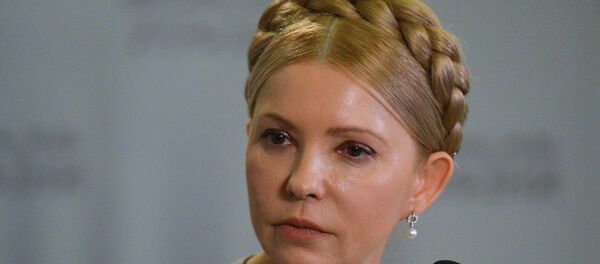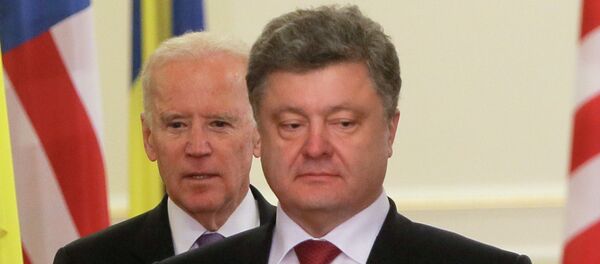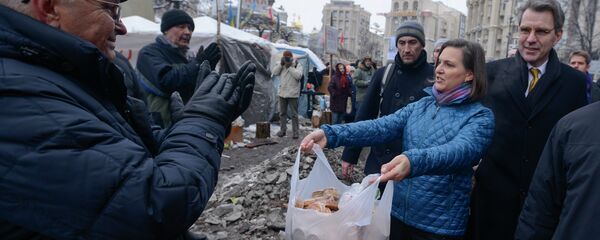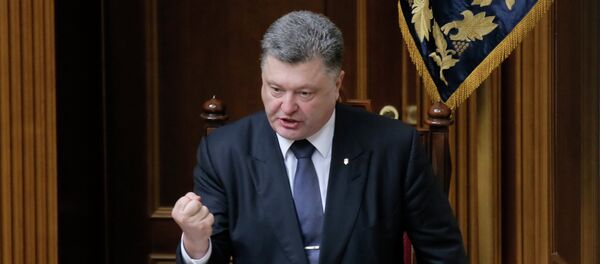Ukraine's oligarchs may have succeeded in taking over state power following the coup against ex-president Viktor Yanukovych, but they did not secure a future for Ukraine outside of their immediate interests.
According to Ukrainian journalist Halyna Palamarchuk, Ukraine's economic decline made the oligarchs' potential gains a matter of conflict that can no longer be watched over and mediated by Yanukovych and his predecessor Leonid Kuchma.
"The Maidan appeared to oligarchs as a chance to return to themselves the business field occupied by the Family," Palamarchuk wrote in business daily ZN,UA.
Oligarch-in-Chief
While it would be disingenuous to pin Ukraine's failure on any one factor or person, President Petro Poroshenko's own ambitions for power appear to be a significant factor. A powerful oligarch, he has played nearly every field in Ukrainian politics since the 1990s, from being one of the founders of Yanukovych's Regions Party to openly sponsoring the protests in the lead-up to the 2014 coup.
Although Poroshenko is largely known for his chocolate "empire," he also owns significant holdings in everything from news media, shipyards, and insurance to agriculture. His Channel 5 had a crucial role as a tool in both the 2004 and 2013-14 protests, and remains a powerful tool, now together with national television, for pushing his narrative.
Poroshenko made sure that this would not happen again after Tymoshenko's release from prison following the 2014 coup. However, despite her high standing among the protesters, Tymoshenko was discredited in a well-crafted campaign which portrayed her as having "Napoleonic" ambitions that would reverse the potential gains of what was portrayed as a "revolution."
Lost Interest
The US initially took a proactive approach in Ukraine's coup and supporting the newly formed government, it appears to have little interest in reforming the country, which no longer presents much interest to US foreign policy other than preserving existing positions. As with many foreign policy failures, such as Iraq, nation-building becomes increasingly less popular in Washington committee meetings.
Even groups as the Legatum Institute, the think tank behind much recent anti-Russia rhetoric, admits this in a puff piece for Lviv mayor Andriy Sadovyi published in Foreign Policy. Before diving into a 32-paragraph promotion of businessman-turned-mayor Sadovyi and his political party, the article makes some important observations about modern Ukraine, essentially admitting that its coup changed very little other than the specific people in power.
"In the face of rot this deep, even overturning the government doesn’t help: it simply replaces one set of top-level bandits with another," Ilya Lozovsky who is part of Foreign Policy's project together with the Legatum Institute wrote.
The US also appears no longer interested in resolving Ukraine's internal disputes. While President Poroshenko's conflict with oligarch Kolomoisky was resolved, as Ukrainians themselves admitted, with US intervention, bringing in post-Soviet apparatchiks from other countries for ministerial and governor positions did startlingly little to change anything at all.
Frozen Conflict
Just as the Ukrainian military amassed on the demarcation line in the Donbass threatens to disrupt the fragile peace deal, conflicts between the oligarchs and the new government are piling up a Poroshenko's own mandate appears increasingly backed solely by his personal wealth.
While Poroshenko was able to have his party swallow that of Kiev mayor Vitaly Klitschko amid plummeting popularity ahead of the country's local elections, Prime Minister Arseniy Yatsenyuk steered clear of the new "party of power," retaining his faction in Ukraine's parliament as well as its backers despite its low popularity.
Conflicts with oligarchs and the government are also heating up, with former Georgian president and now Odessa region governor Mikheil Saakashvili accusing the central government and Yatsenyuk of failing to carry out reforms in an interview to Poroshenko's Channel 5 television. Saakashvili added that Ukraine's government is controlled by "oligarchic interests." Saakashvili is also involved in a bitter dispute with oligarch Kolomoisky and his political representative/henchman Borys Filatov.
The tentative ceasefire in Donbass under the Minsk Agreement could also be under threat if Poroshenko's power continues to diminish and increasingly desperate measures are taken to shore up public support, such as a new war. Going it alone, however, without a commitment from nationalists, oligarchs or external actors such as the US may turn disastrous for Poroshenko and become his own undoing.
